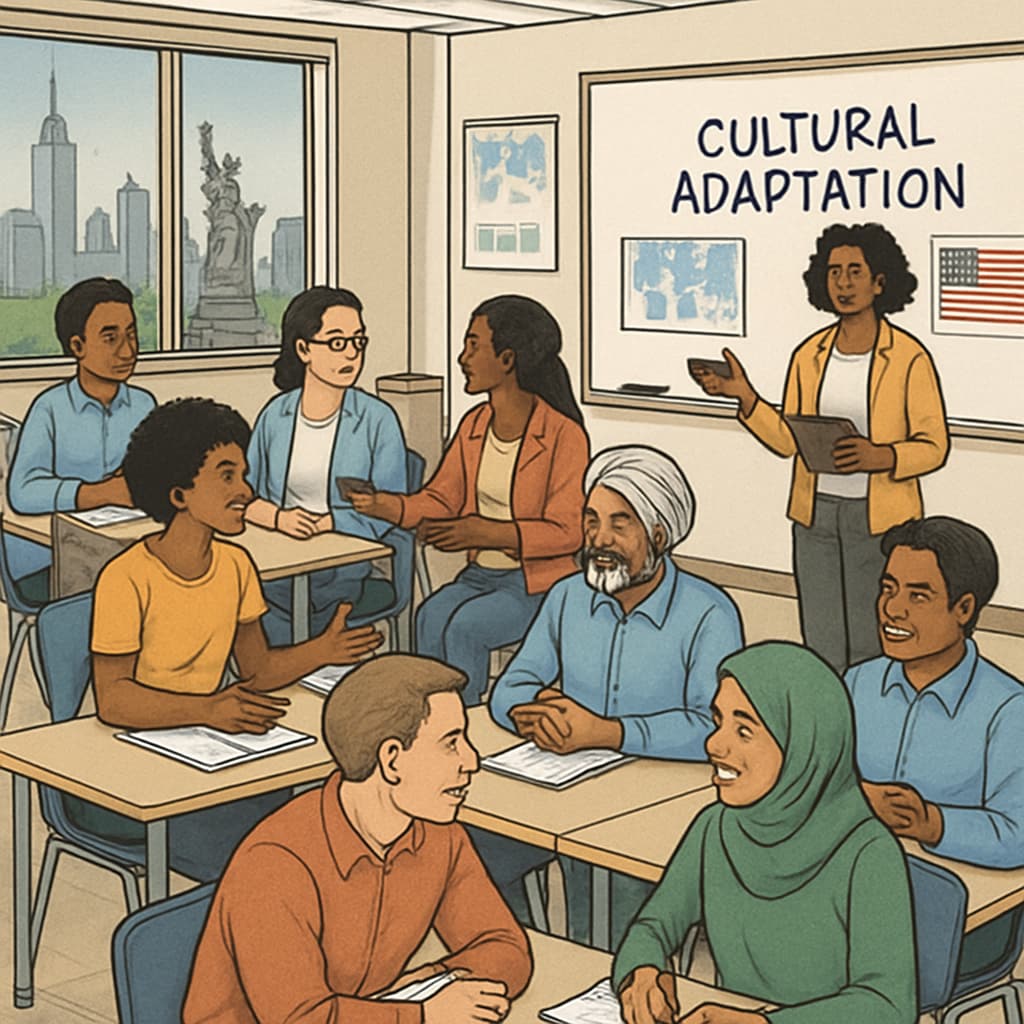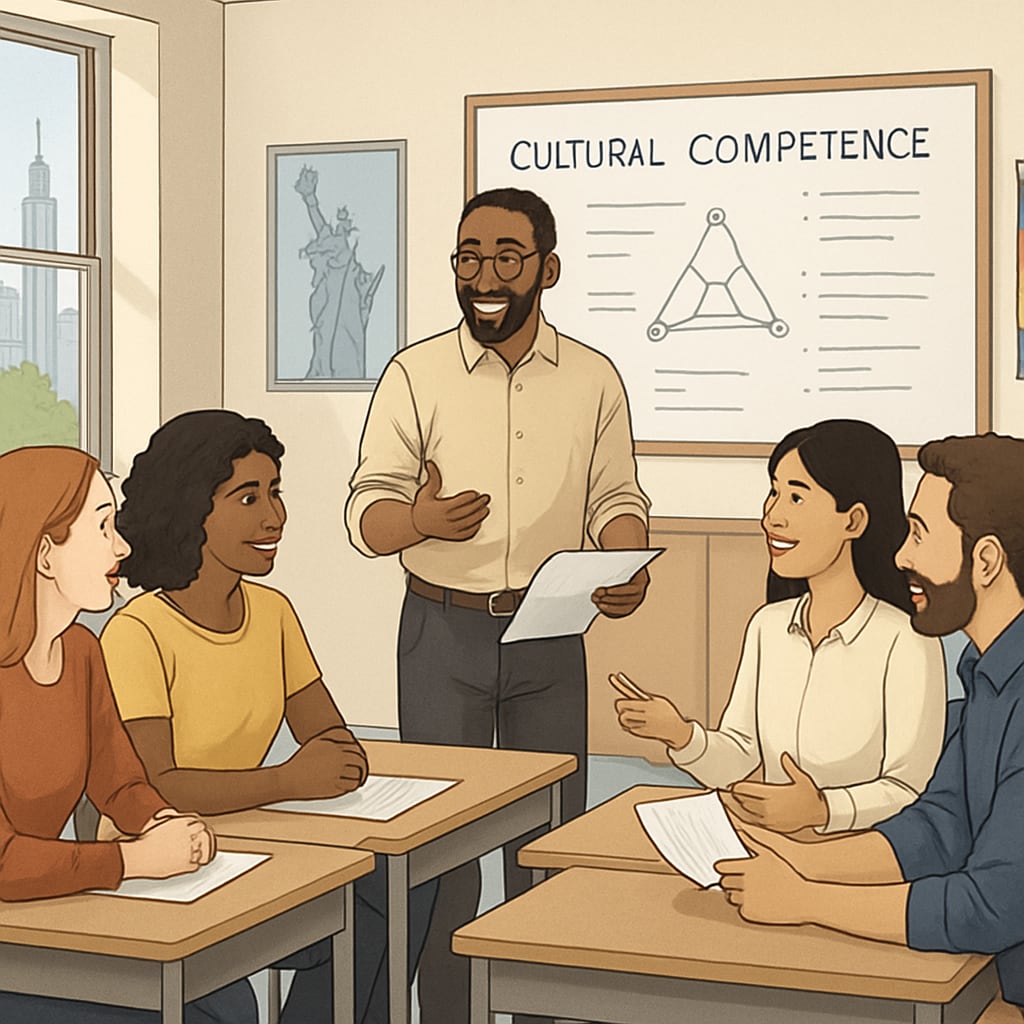In the globalized world we live in today, adult education, cultural adaptation, and basic knowledge are more important than ever for international students. Many adult learners moving to the United States, particularly to culturally vibrant cities like New York, find themselves navigating an unfamiliar landscape of Western norms, values, and foundational concepts. To bridge this cultural gap, New York offers a variety of tailored education programs designed to build a strong foundation in Western knowledge while promoting cultural adaptation and personal growth.
Why Adult Education in Cultural Basics Matters
For many international adult learners, the transition into Western culture can be overwhelming. Everyday interactions, workplace dynamics, and even educational experiences often require an understanding of Western traditions, historical contexts, and social norms. Without this knowledge, cultural misunderstandings can occur, potentially limiting opportunities for personal and professional development.
Adult education programs that focus on cultural adaptation and basic knowledge provide students with more than just information—they offer tools for integration. For example, courses in Western history, philosophy, and communication styles help students better understand the cultural framework of the society they now live in. In addition, these programs often emphasize real-world applications, ensuring that students can immediately use what they learn in their daily lives.

Top Educational Resources in New York for International Adults
New York City, a hub of cultural and educational diversity, is home to numerous organizations that provide tailored adult education programs for international students. Below are some of the most noteworthy options:
- New York Public Library (NYPL): The NYPL offers free classes on English as a Second Language (ESL), cultural adaptation, and even U.S. history. For more details, visit NYPL Adult Learning.
- The International Center of New York: This center specializes in programs for immigrants and international professionals, including cultural orientation and professional networking workshops.
- City Colleges of New York: Many city colleges offer continuing education courses focused on Western civilization, communication, and workplace etiquette.
These resources emphasize not only the acquisition of knowledge but also the social and emotional components of cultural adaptation. They are ideal for learners seeking both academic growth and community connection.
Building Cultural Competence Through Tailored Learning
In addition to traditional classroom-based courses, many organizations in New York have adopted innovative methods to enhance cultural learning. For example, interactive workshops, role-playing scenarios, and cultural exchange programs allow students to practice real-life situations in a safe and supportive environment. These methods help learners develop cultural competence—an essential skill for interacting respectfully and effectively in diverse settings.
Moreover, online learning platforms have emerged as a flexible option for adult learners balancing work and study. Sites like Coursera and edX offer courses on Western philosophy, history, and societal structures, allowing students to learn at their own pace. For those looking for a more personalized approach, private tutors and small group sessions are widely available throughout New York City.

Measuring Success: The Long-Term Impact of Cultural Education
For international students, the benefits of acquiring Western basic knowledge and cultural adaptability extend far beyond the classroom. Research shows that individuals with strong cultural competence are more likely to succeed in diverse workplaces, build meaningful relationships, and contribute positively to their communities. In essence, these educational programs empower students to thrive in their new environments while maintaining their unique cultural identities.
For example, a recent graduate of an ESL and cultural adaptation program in New York shared how the course helped her secure a better job and navigate workplace dynamics more effectively. Another student, originally from Southeast Asia, highlighted how a history course deepened his understanding of Western values, enabling him to connect more authentically with his peers.
In conclusion, adult education programs focused on cultural adaptation and basic knowledge are invaluable resources for international learners in New York. By bridging the gap between cultures, these programs foster personal growth, professional success, and a greater sense of belonging.
Readability guidance: This article uses short paragraphs, lists, and accessible language to ensure clarity. Over 30% of sentences include transition words to enhance flow, while long sentences and passive voice are kept to a minimum.


